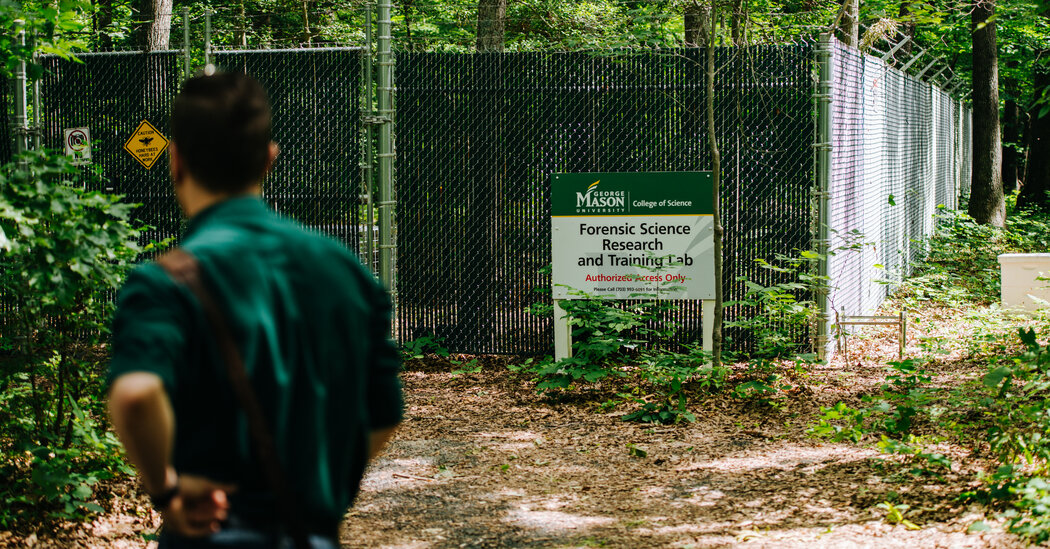By studying bees and their honey near decomposing human tissue, researchers at George Mason University hope to give crime scene investigators a new tool for finding the hidden dead.
Deep in the woods in Northern Virginia last month, two human bodies were carried to a remote spot among the trees and left to decompose. As nature takes its course, the bodies will exude organic compounds into the air and soil. Flowers growing nearby will absorb traces of the decay, which pollinating bees will carry to hives.
Forensics researchers at George Mason University plan to study the bees, their honey and the hives near the burial site, a new “body farm” in Manassas, Va., about 25 miles southwest of Washington, D.C. Because bees forage within a close range of their hives, the researchers hope to draw up a formula for human decomposition that investigators can use when searching wide expanses of land for the hidden dead.
“Bees are going to be bringing back whatever chemical signals they have encountered in a decomposing human,” said Dr. Brian A. Eckenrode, an associate professor in the forensics program at George Mason’s College of Science. “It could be really helpful for large search areas.”
Or as Mary Ellen O’Toole, the director of George Mason’s forensic science program, put it, the bees “are tiny crime fighters with wings.”
The university’s forensic science program has worked for several years to start the body farm, one of more than half a dozen research sites in the United States designed to replicate an outdoor crime scene where human remains are found. The team at George Mason hopes their studies in the environment of Northern Virginia could someday add to the toolbox of methods that investigators use in their searches.
“Because we are the first body farm on the Atlantic seaboard, it could tell us quite a bit,” said Dr. O’Toole, a former F.B.I. agent and profiler who worked on the Green River Killer case.
